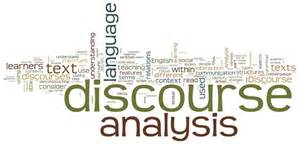 |
Facts
Duration: 1 semester
Period: Fall Semester
Credits: 2 ECTS
Contact Hours: 24
Self-study: 72
Hours: 96
|
Main Objectives
- presentation of functional and logical and semantic discourse organisation, nonverbal or contecstual variables significant for discource produsing and interpretation;
- introdaction of discourse pragmatic aspects: speach acts, interferention, implication and presupposition, etc.;
- analysis of multifunctional discource organisation: cohesion of discource, exchange structure, etc.
Learning Outcomes
Formation of competence:
а) intercultural:
- the ability to develop cultural and professional level independently and to master new methods of research;
- the ability to get and use new knowledge independently.
b) professional:
- the ability to implicate methods of discourse analysis to different types of texts;
- the ability to use discourse analysis in world and regional sociolinguistical problems solving.
Professor
Daria Postnikova
Course annotation
|
Course unit code |
Specialization 470401 – Philosophy |
|||||
|
Course unit title |
Discourse analysis |
|||||
|
Name(s), surname(s) and title of lecturer(s) |
Daria Postnikova |
|||||
|
Level of course |
Master |
|||||
|
Semester |
1 |
|||||
|
ECTS credits |
2 |
|||||
|
Working hours |
Contact hours |
24 |
||||
|
lectures |
8 |
|||||
|
seminars |
16 |
|||||
|
practical classes |
||||||
|
laboratory classes |
||||||
|
consultations |
||||||
|
Self-study |
72 |
|||||
Total |
96 |
|||||
|
Work placement |
Lectures and seminars |
|||||
|
Language of instruction |
English |
|||||
|
Objectives of the course |
Learning outcomes |
A student’s assessments methods |
||||
|
aims: - presentation of functional and logical and semantic discourse organisation, nonverbal or contecstual variables significant for discource produsing and interpretation - introdaction of discourse pragmatic aspects: speach acts, interferention, implication and presupposition, etc. - analysis of multifunctional discource organisation: cohesion of discource, exchange structure, etc. |
Formation of competence: а)intercultural: - the ability to develop cultural and professional level independently and to master new methods of research; - the ability to get and use new knowledge independently. b) professional: - the ability to implicate methods of discourse analysis to different types of texts. - the ability to use discourse analysis in world and regional sociolinguistical problems solving |
Individual paper works, essays, tests and credit test. |
||||
|
Teaching methods |
Lectures, independent study of literature, case studies, individual paper works, essays |
|||||
|
Course unit content |
Gained knowledge: History and theory of discourse analysis, concepts of discourse analysis.
|
|||||
|
List of Topics |
Topic title |
Contact (hours) |
Assignments and independent study (hours) |
|||
|
Discourse concept and discourse analysis history |
4 |
4 |
||||
|
Propositional content of statement |
4 |
4 |
||||
|
Semantics and pragmatics of statement |
4 |
4 |
||||
|
Presupposition as a proposition of sentence |
4 |
4 |
||||
|
Speach acts theory |
2 |
6 |
||||
|
Mechanisms of speach implantation |
2 |
6 |
||||
|
Pragmatic aspects of discourse |
2 |
16 |
||||
|
Theory of communication failure |
2 |
12 |
||||
|
Credit test |
0 |
16 |
||||
|
24 |
72 |
|||||
|
Assessment requirements |
Student’s skills in this subject will be evaluated by means of individual paper works, essays, written tests and credit test. |
|||||
|
Assessment criteria |
The assessment of the presented works is carried out by the following criteria: – compliance of the contents to a subject; – existence of logical communication of stated information; – compliance of registration to requirements; – accuracy and literacy of a statement; – work is handed over in time. |
|||||
|
The composition of final accumulative mark |
Final accumulative mark consists of: 2 essays –15 % each, individual assignment – 20 %, group case analysis and individual paper work – 20 %, credit test – 30 % |
|||||
|
Author of the course |
Evgeniy Naiman, Daria Postnikova |
|||||
.png)